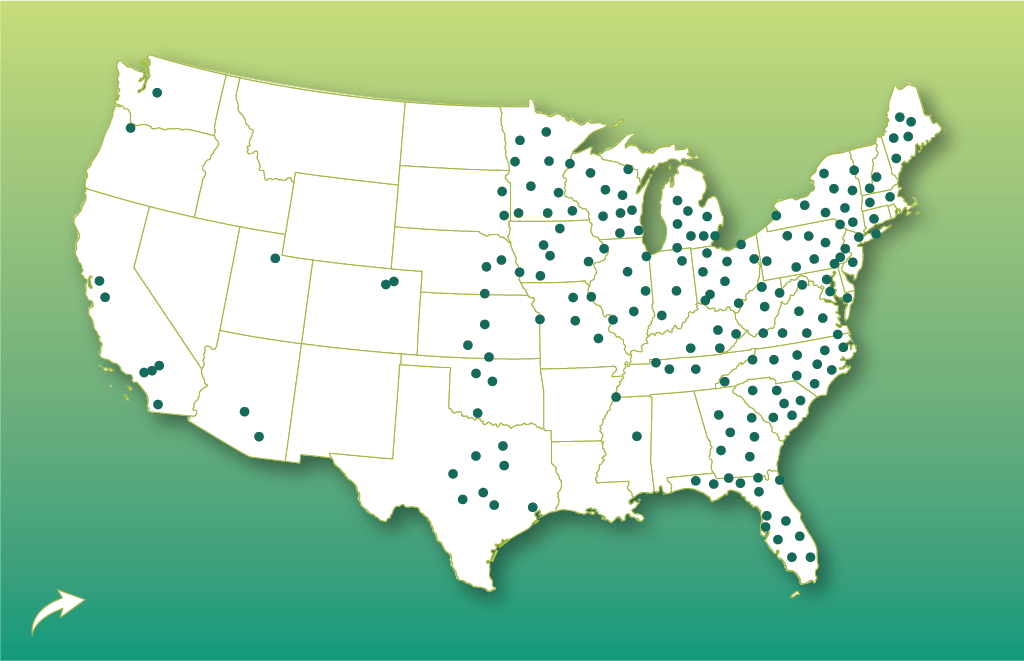What to Expect With KYMRIAH
What is the process for getting KYMRIAH?
You and your treatment team may be considering KYMRIAH® (tisagenlecleucel). Below is a detailed description of each step so you know what to expect with KYMRIAH therapy. Your treatment team will be there to help guide you through the process. To watch Robyn and her family discuss their experience with each step of the KYMRIAH process, click the video clip next to that step.

 Initial Discussion
Initial Discussion
KYMRIAH is a therapy for adults with diffuse large B-cell lymphoma (DLBCL) that is refractory or in second or later relapse. Discuss your treatment history and overall health with your doctor to see if you are a candidate for KYMRIAH therapy. Go to What should I ask my treatment team? for help speaking with your doctor.
 Find a KYMRIAH Treatment Center
Find a KYMRIAH Treatment Center
Some people are already receiving treatment for their relapsed/refractory (r/r) DLBCL at a treatment center that administers KYMRIAH. Others get a referral for KYMRIAH from their primary oncologist. If you haven’t already selected your treatment center, view the list of participating KYMRIAH Treatment Centers, or call KYMRIAH CARESTM at 1-844-4KYMRIAH (1-844-459-6742) for an up-to-date list of treatment centers in the United States so you can find a center near you.
 Collection
Collection
Treatment with KYMRIAH uses your own cells, so the process begins with T cell collection. A small, temporary tube (IV catheter) will be placed into your vein to collect your T cells. This process is called leukapheresis (pronounced "loo-kuh-fuh-REE-sis") and takes about 3 to 6 hours.
 Preparing for Infusion
Preparing for Infusion
Your cells will be sent to a manufacturing facility to be reprogrammed into KYMRIAH CAR-T cells. The process usually takes 3 to 4 weeks, but timing and manufacturing outcomes can vary. About 2 to 11 days before your KYMRIAH CAR-T cells are ready, you may receive a short course of chemotherapy over 2 to 3 days that helps prepare your body to receive your reprogrammed KYMRIAH CAR-T cells. Your treatment team can help guide you through the process. Watch the mechanism of action video to learn more about what happens to your T cells.
 Infusion
Infusion
Once your KYMRIAH CAR-T cells are ready, your treatment team will schedule your IV infusion, which usually takes less than 30 minutes.
 Monitoring
Monitoring
In the short term, regular monitoring to manage side effects is important. Whether you received your infusion in an inpatient or outpatient setting, it will be necessary to stay close to your treatment center for at least 4 weeks after receiving KYMRIAH.
In the long term, your treatment team will establish a monitoring plan for ongoing follow-ups. The US Food and Drug Administration (FDA) recommends that all patients who are treated with KYMRIAH be followed for 15 years after infusion. Your treatment team will offer you participation in a long-term registry conducted by the Center for International Blood and Marrow Transplant Research (CIBMTR) for this follow-up. This information is used to help future patients and contributes to the understanding of the effects of CAR-T cell therapy.
Robyn and Scott Today
Each unique patient handles DLBCL differently. Hear Robyn and her husband, Scott, discuss the importance of a support system and explain how Robyn's experiences as a patient have affected her perspective as a physician.



